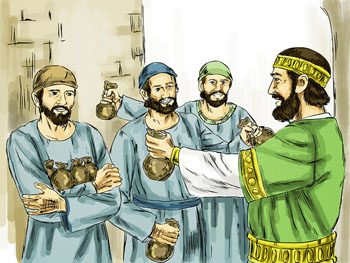Where money and investments are concerned, a fiduciary is a person or organization that owes you good faith and trust and who promises to act in your best interest. The Stewardship Foundation has fiduciary responsibility to our clients. But we boldly do more—we are financial stewards.
Our first priority is to apply our passion and discipline to protect your long-term interests, not merely to demonstrate that we act in your best interest. Our work has a higher sense of purpose.
As financial stewards, we are committed to being a point of inspiration for moral, ethical and prudent decision-making. An investment fiduciary can ignore morality and ethics, and still serve as a fiduciary.
 A financial steward must be able to judge wisely and objectively, while a fiduciary needs only to confirm to a uniform fiduciary standard. We believe that there’s a wide gap between being qualified to guide a client toward good decisions, and being competent to stand up for and speak out about unethical or illegal behavior.
A financial steward must be able to judge wisely and objectively, while a fiduciary needs only to confirm to a uniform fiduciary standard. We believe that there’s a wide gap between being qualified to guide a client toward good decisions, and being competent to stand up for and speak out about unethical or illegal behavior.
Financial stewardship is a voluntary standard that is not subject to legal or regulatory oversight. Unlike a fiduciary, we don’t have to wait for regulators to define the standard of care for a financial steward.
The concept of fiduciary responsibility is processed in the neo-cortex portion of the brain involved in sensory perception, cognition, motor commands, reasoning and language. Stewards operate there too, but prioritize their thinking in the emotions of love, passion, trust and security, the limbic portion of the brain.
Our clients tend not to define their wealth in terms of cash, securities, real estate, business, cars or jewelry. While they may possess these things, they are not what makes their lives truly satisfying or happy. Victor Frankl, psychiatrist, Holocaust survivor and author of Man’s Search for Meaning presents a theory that our primary drive in life is not toward pleasure and power, but toward the discovery and pursuit of what we personally find meaningful. As good stewards, we help our clients identify the personal aspect of their wealth and to help them make a difference within the institutions and causes they care about.
 The average American gross income is currently $71,258. That seems like good news until we realize that the average American household with a mortgage and other loans is $132,539 in debt, including an average $16,061 on credit cards.
The average American gross income is currently $71,258. That seems like good news until we realize that the average American household with a mortgage and other loans is $132,539 in debt, including an average $16,061 on credit cards. Most of us consider stewardship as a theological belief that humans are responsible for the world, and should take care of it. There’s much talk of caring for creation—the animals and the environment—and many charitable opportunities for these things. In Genesis 2:15 it is written, “The LORD God then took the man and settled him in the garden of Eden, to cultivate and care for it.” So we are driven to “serve the garden in which we have been placed” and we apply this to our ways of life, teach it to our children, and practice it in our politics.
Most of us consider stewardship as a theological belief that humans are responsible for the world, and should take care of it. There’s much talk of caring for creation—the animals and the environment—and many charitable opportunities for these things. In Genesis 2:15 it is written, “The LORD God then took the man and settled him in the garden of Eden, to cultivate and care for it.” So we are driven to “serve the garden in which we have been placed” and we apply this to our ways of life, teach it to our children, and practice it in our politics.